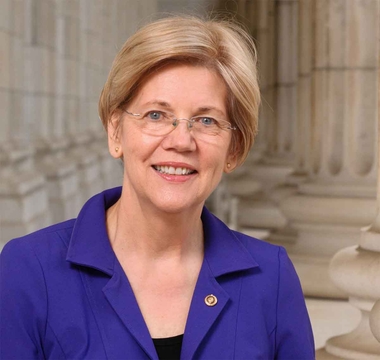Did Elizabeth Warren miss her chance?

She's running.
Elizabeth Warren, that is, who announced the formation of a presidential exploratory committee on Monday -- making the Massachusetts senator the first top-tier contender into the 2020 Democratic race.
Or is she? A top-tier contender, I mean.
A few years ago, that question would have been a no-brainer. Warren was courted by liberals unsatisfied with Hillary Clinton's 2016 candidacy to make a late entrance into the race. Had she done so, she could well have offered a more electable alternative to Vermont Sen. Bernie Sanders, casting herself as a liberal's liberal who had both fought and worked within the system successfully.
She passed on that race.
Now, with several years of hindsight, you have to wonder whether she missed her moment.
Warren enters this 2020 contest as one of the fundraising leaders (she had more than $12 million in the bank at the end of November), one of only a handful of candidates regularly polling in the high single-digits or low double-digits in most national polling on the 2020 contest, and someone who has already built the start of real organizations in early voting states like Iowa and New Hampshire.
And yet, the shine that surrounded her from her 2012 Senate win through (and even after) the 2016 election has been quite clearly tarnished, most notably by her botched attempt this fall to put questions about her Native American heritage behind her. The release of a slickly produced video regarding her claims of Native American ancestry did nothing to quell the controversy and almost certainly made things worse.
In the wake of that disaster, stories emerged -- including this one in The New York Times -- that suggested the heritage debacle had raised doubts even in the minds of her most loyal supporters about her capacity to run and win in 2020. And as Harry Enten notes, Warren's 2018 re-election victory was not terribly impressive, either.
That Warren decided to be the first major candidate to explore the race -- outgoing Rep. John Delaney is already running and former HUD Secretary Julian Castro formed an exploratory committee earlier this month -- is in some ways an acknowledgment of her weakened state. The supposed favorites usually hold off announcing their runs until the spring -- waiting to see how the field shakes out a bit (and letting the lesser-known candidates fight it out) before wading in. In this race, that would include people like Sanders and former Vice President Joe Biden.
It once would have also included Warren. But her decision to enter early is clearly an acknowledgment that she has considerable work to do with early state voters (and major donors) to repair the self-inflicted damage of her attempt to put the Native American question behind her.
Writing off any candidate 13 months before a single voter votes is idiotic. Warren has time to fix what ails her. She has money and organization to help do that. And she has a message -- corporate greed and corruption are rampant in the country all the way up to and including the White House -- that should resonate with a Democratic electorate that is absolutely fed up with the direction President Donald Trump has led the country.
That said, the presidential race is built on momentum and timing. Barack Obama might not have been "Barack Obama" if he had passed on running in 2008 because Clinton was already in the race. Beto O'Rourke is the hot thing in Democratic politics right now, but what if he decides not to run in 2020? Where will he be in four years? (Sidebar: This is exactly why O'Rourke shouldn't even hesitate to run this time around.)
To understand how impactful timing and momentum are to a candidate's chances, Warren needs to look no further than the woman she was being urged to take on in 2016.
Elected to the Senate in 2000, Clinton was immediately seen as a likely presidential candidate. She repeatedly demurred despite urgings as late as the fall of 2003 that she should make a last-minute entry into the 2004 campaign against George W. Bush. John Kerry won the nomination -- and promptly lost to Bush.
Clinton's decision to pass on the 2004 race was seen, at the time, as a savvy one. Beating an incumbent is never easy and Bush was still benefiting somewhat from the aftermath of his handling of the September 11, 2001 terrorist attacks. The 2008 contest was an open one, and Clinton was regarded as a clear favorite -- not just for the nomination, but the White House.
Then came Obama. And Clinton's best-laid plans were shattered. Eight years later, Clinton appeared to have a second chance. Then along came Trump, who blasted her as a creature of the past and the political swamp -- labels she struggled to rid herself of due to her long years spent in the national spotlight.
The point here is simple: When running for president, timing matters hugely. Windows of opportunity sometimes open -- and close -- unexpectedly. Hindsight is, of course, 20/20 -- but I bet if you asked Clinton today whether she should have run in 2004, she would likely say "yes."
Warren is hoping like hell that the window that opened for her in 2016 hasn't slammed shut in 2020. That is, of course, an open question.
Analysis by Chris Cillizza, CNN Editor-at-large. The-CNN-Wire™ & © 2018 Cable News Network, Inc., a Time Warner Company. All rights reserved.
The Gayly – December 31, 2018 @ 3:10 p.m. CST.





